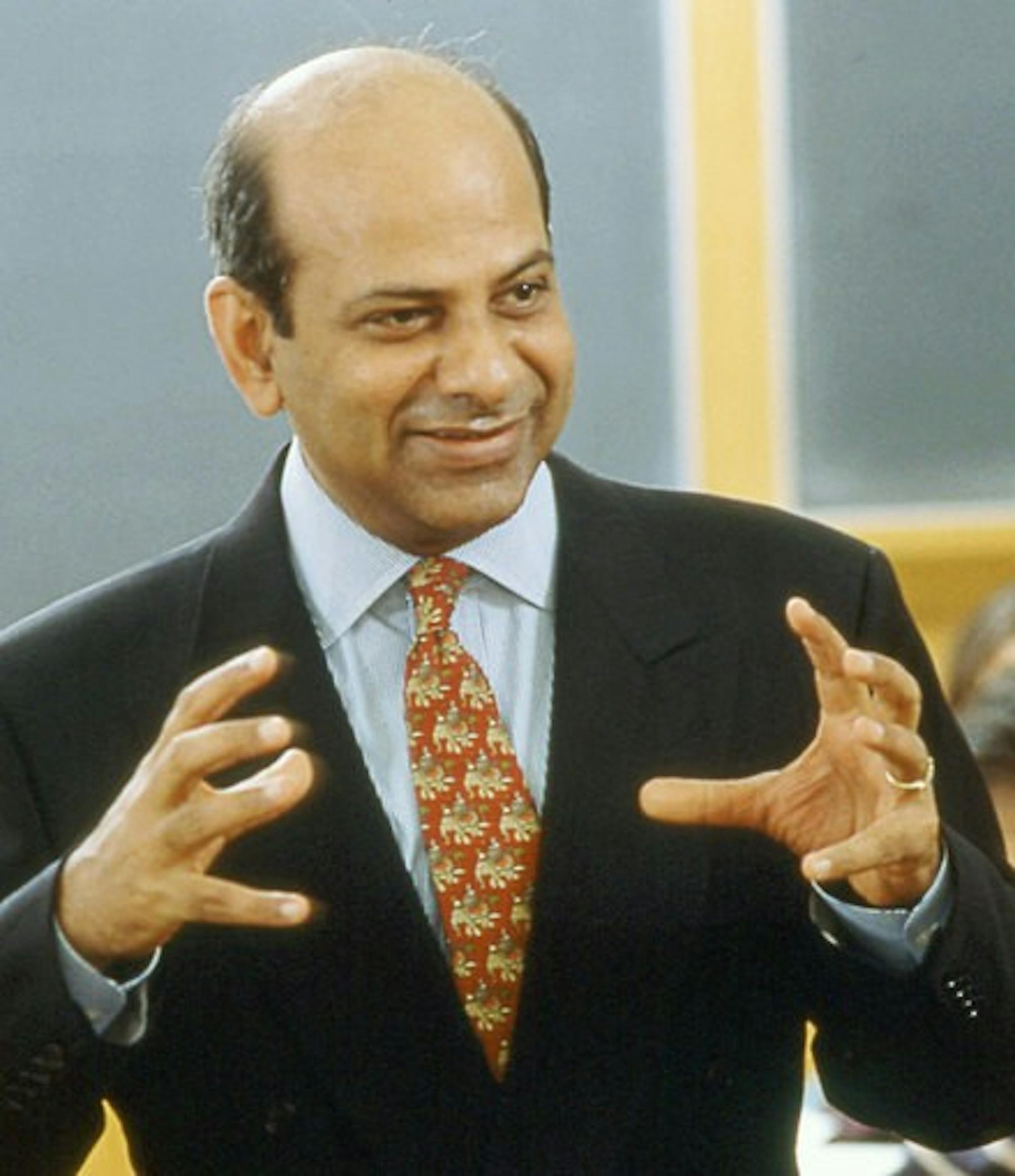Govindarajan, who moved up eight places from the last compilation to the rank of 23 this year, partly credited his selection to the success of his internationally-bestselling book "Ten Rules for Strategic Innovators." He added that his impressive reputation among corporations probably also helped his placement on the list, as he has advised 150 of the world's leading corporations for 25 years on the topic of innovation.
"While the book's success gives tangible evidence that people are reading it, you have to think about who the corporations look up to when it comes to innovators," Govindarajan said. "Innovation is the commercialization of creativity. Creativity focuses on individual acts and ideas, and the commercialization of ideas is terribly important to corporations."
Govindarajan has focused his career on the pursuit of innovation. His belief that freedom is necessary for innovation drove him to leave India's centralized economy for Harvard Business School at the age of 25. Harvard Business School was a "game-changing influence" in his career, he said. His tenure at the Tuck School was another major accomplishment that afforded him a tremendous platform from which to speak, he added.
Next year, Govindarajan will become the first Professor in Residence and Chief Innovation Consultant for General Electric during his year-long leave of absence. The position was created to advance the innovation agenda at GE in areas such as environmental technologies and demographics, Govindarajan said. He added that the appointment would open up many doors while giving him the opportunity to write another book on his experience at a major company.
He stressed, however, that he saw Dartmouth in his future and that he would teach his popular class called Implementing Strategy for a term next year.
"I love Tuck, I love the students and I love teaching," Govindarajan said. "I will not leave Dartmouth."
D'Aveni, who ranked 46th on the list, specializes in competitive and global strategy. He credited his renown to his bestselling books, "Hypercompetition" and "Hypercompetitive Rivalries". While "Hypercompetition" was controversial at first because the competitive approach to strategy directly challenged Harvard Business School's model, D'Aveni believes his bold ideas are now accepted.
"Harvard's model used to be being nasty to customers, nasty to suppliers and nice to rivals," D'Aveni said. "My model was to reverse that. Instead of monopolizing customers, you treat them better. Create alliances with suppliers."
D'Aveni's ideas concerning strategic supremacy, in which he likened the fighting capacities of global corporations to those of global empires, attracted several French companies to ask him for assistance in enlarging the French economic sphere in the world. He also backed short-term advantages as the key to success in business, rather than a 15-year plan.
"It's a video game rather than a chess match," D'Aveni said.
The recognition of D'Aveni's ideas afforded him an invitation to the high-profile World Economics Forum. He has also had success advising for corporations such as Motorola, PepsiCO, GE and General Motors.




